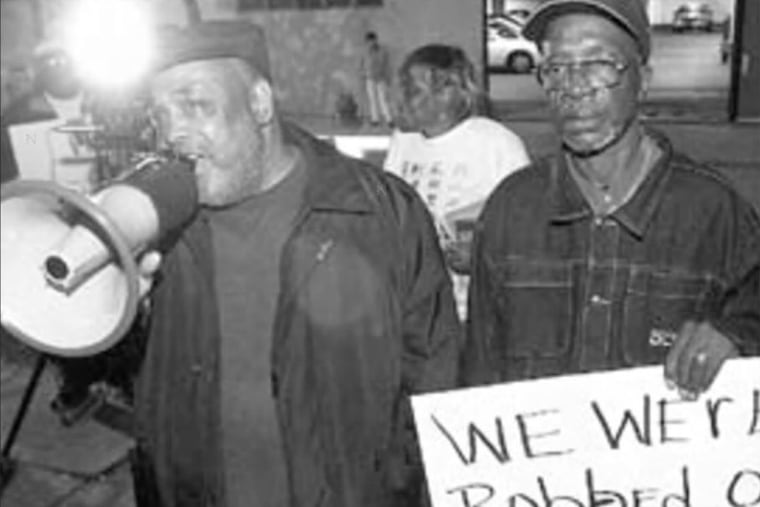Penn should do more to atone for Kligman’s unethical research on incarcerated Black men | Opinion
One of the men Dr. Kligman experimented on was my father. I saw the harm caused firsthand.

The coronavirus pandemic, especially distrust of the vaccine in Black communities, has put a spotlight back on America’s long history of medical racism. That includes the research of Albert Kligman, a University of Pennsylvania dermatologist who conducted unethical experiments primarily on Black incarcerated men. Two dermatologists, including one from Penn, recently called on the university to cut ties with Kligman, whose name is still on professorships, lectures, and laboratories at Penn and scholarship funds at Penn State Mont Alto. But that call to action continues to miss the point.
» READ MORE: Penn must cut ties with Dr. Albert Kligman, who conducted unethical human research on Black men | Opinion
I’m the daughter of the late Leodus Jones, one of the thousands whom Kligman used and abused as lab rats in Holmesburg Prison. As Allen Hornblum carefully documented in his book Acres of Skin, Kligman patched, scratched, and injected inmates with an assortment of drugs, chemicals, and concoctions for over two decades. While those experiments — some using dioxin, which is toxic, radioactive material, and chemical warfare agents — made him, his university, and pharmaceutical companies extremely wealthy, it ruined the health of his “test subjects.” I know because I witnessed it firsthand.
I remember when I was around age 5, my father’s behavior and appearance after his incarceration and Kligman’s guinea pig experiments changed dramatically. His skin smelled burnt and his back gradually took on the appearance of a map. It was scary. Even worse, his temperament and treatment of his children and wife severely changed. My father went from a mild-mannered man to an aggressive one. As a little girl, I thought my dad was turning into a monster. His behavior had a significant impact on me. I went through my adolescent years emotionally disturbed and running away from home because of the dysfunction I saw at home. Eventually, I also landed in prison. My life had been damaged at a very young age, and it felt like the experiments turned my father into a monster.
Unethical behaviors like Albert Kligman’s should not be celebrated and honored by the University of Pennsylvania. His documented abuse of vulnerable populations — among the worst in American medical history — should not be honored with lectureships and professorships. But Penn has to do more than remove his name from those honors to make it right. If the university wants to be seen as a good neighbor and honorable institution, it should give back to communities that Kligman’s work harmed.
For starters, they could reach out and examine the surviving Holmesburg test subjects for ailments that may have originated with those experiments. Initiate an annual lecture program that illuminates the history of using an institutionalized population as raw material for experimentation.
Penn made millions off the skin of my dad and other imprisoned men and women. Kligman filed a patent for Retin-A — an acne treatment developed on the faces and backs of poor Black Philadelphians locked behind the walls of Holmesburg prison — gave a commercial license to Johnson & Johnson that also benefited the university, and donated at least $15 million to Penn’s dermatology department from royalties. Some of that money should go back to those who suffered most to develop it.
» READ MORE: Leodus Jones, 74, bore witness to Philly's grisly Holmesburg prison experiments
And to prevent the historical erasure of Black families who contributed to Penn through our suffering, name a hall at Penn after the inmates involved in experiments — whether my father or someone like Yusef Anthony, another “lab rat” who has shared publicly that he struggled for decades after to live a healthy life.
I feel that many lives in Philadelphia will benefit from Penn grappling with this ever-resurfacing horror, especially amid renewed calls for racial justice led by Black Lives Matter. I also strongly believe that unethical practices like those of Kligman and other researchers have caused many like myself to distrust the COVID-19 vaccine, as well as doctors and hospitals in general. It’s time for Penn to make it right with concrete action, not just changing honorifics.
Adrianne D. Jones-Alston began advocating for newly released citizens in the year 2012 and lives in Virginia. makeitright0901@gmail.com